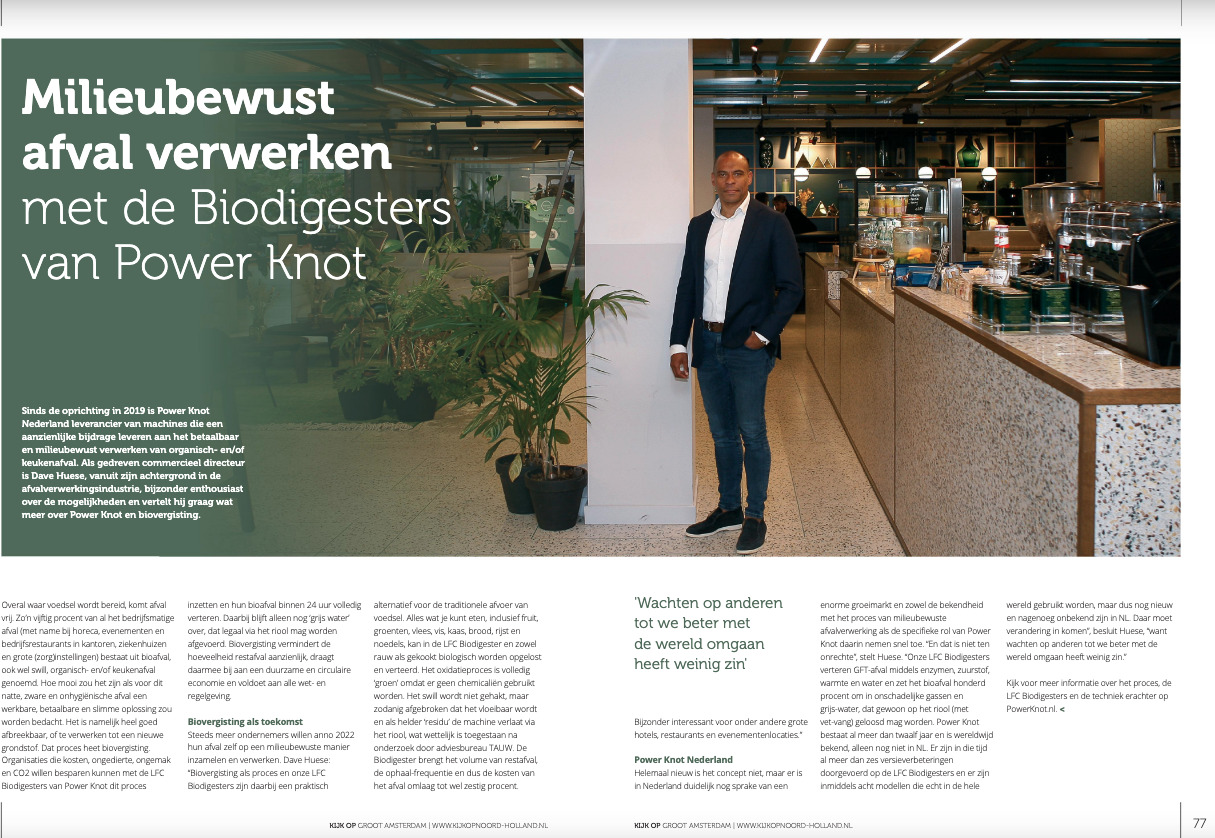Nieuws en evenementen
June 2022
Organisaties die kosten, ongedierte, ongemak en CO2 willen besparen kunnen met de LFC Biodigesters van Power Knot dit proces inzetten en hun bioafval binnen 24 uur volledig verteren. Daarbij blijft alleen nog ‘grijs water’ over, dat legaal via het riool mag worden afgevoerd. Biovergisting vermindert de hoeveelheid restafval aanzienlijk, draagt daarmee bij aan een duurzame en circulaire economie en voldoet aan alle wet- en regelgeving.
August 2, 2019
AGE is the cornerstone of the Australasian gaming and hospitality industry. It is where gaming, technology, and hospitality meet.
May 17, 2019
Power Knot will be exhibiting at ExpHotel 2019, come and see the LFC biodigester at the most important business forum for the hospitality industry from Mexico and the Caribbean.
11-13 Jun 2019, Cancun ICC.
Press Releases
December 4, 2019
Faculty at the New Orleans Culinary & Hospitality Institute (NOCHI) has introduced the Power Knot LFC® biodigester as part of its curriculum focus on reducing food waste.
August 19, 2019
Residents at the new Royal Winchester House apartment building will recycle all their waste food onsite, dramatically lowering the carbon footprint of a landmark residential development
July 9, 2019
Working together, we can help organizations in the public and private sectors across the UK reduce carbon emissions and meet their sustainability and corporate responsibility goals.
Blog
October 1, 2019
The latest Intergovernmental Panel on Climate Change (IPCC) Special Report highlights the urgency of prioritizing timely, ambitious, and coordinated action to address unprecedented and enduring changes in the ocean and cryosphere. Businesses in the foodservice industry can play an important role in carbon mitigation.
September 14, 2019
Many cities are actively discouraging homeowners from using in-sink waste food disposal and urge residents to include food waste such as scraps and leftovers in the same green bin as yard waste. But offering a waste food recycling program to multi-family residential buildings and commercial foodservice operators requires a different approach.
September 8, 2019
Waste food that ends up in a landfill produces methane — a gas with 84 times the global warming potential of carbon dioxide. How can foodservice operations minimize the carbon footprint associated with their food scraps and waste food?















